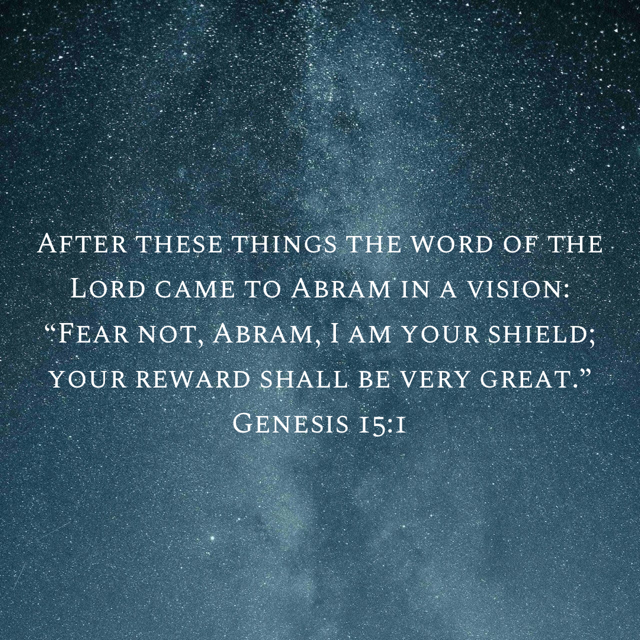This sermon, preached by Pastor Josh Major on July 13, 2025, titled "What Will You Give Me, Lord? Trusting in the Promises of God," zeroes in on Genesis chapter 15, which the speaker highlights as one of the most vital chapters in the Bible. It explores Abram's long wait for God's promise from Genesis chapter 12 to be fulfilled, and how this led him to question God's faithfulness.
Unpacking the "Firsts" in Genesis 15:1
The sermon delves into some significant "firsts" found in this foundational verse:
"The word of the Lord came": This phrase marks a pivotal shift in how God communicates. It signifies a move from direct speech to individuals like Adam and Noah, towards revealing His word through prophets.
"In a vision": This is also the inaugural appearance of this phrase, indicating that visions would become a more common method for divine communication among Old Testament prophets.
"Fear not": The initial instance of this comforting phrase in scripture, offered as an encouragement to a fearful Abram.
Abram's Fear and God's Shield
Abram's fear is understandable, stemming from his recent victory over four kings in Genesis chapter 14. This triumph put him at risk of a counterattack, especially since he had refused King Sodom's offer of provision, choosing to rely solely on the Lord.
God directly addresses Abram's fear by declaring, "I am your shield." This is the first time God uses a metaphor to describe Himself in scripture, implying all-encompassing protection. The sermon clarifies that being God's shield doesn't mean protection from all afflictions, but rather an ultimate security in God through Jesus Christ.
The Promise of an Heir and the Stars
Abram's primary concern revolves around his childlessness. Despite God's promise of a great nation through his offspring, his heir is Eleazar of Damascus, not his own son. Notably, 20 years have passed since the initial promise, with Abram in his 80s and Sarah in her 70s.
God provides a twofold answer to Abram's distress:
Abram will have his own son, and his descendants will be as numerous as the stars.
God is the one who called Abram to give him the land to possess.
God reaffirms, "This man shall not be your heir; your very own son shall be your heir." He then instructs Abram to look at the stars, proclaiming, "So shall your offspring be." Abram believes the Lord, and it is counted to him as righteousness. This belief is tied to the New Testament, specifically Galatians 3:29, which states that those who are in Christ are Abram's offspring and heirs according to the promise.
Applying God's Promises to Our Lives
The sermon offers two key applications for believers:
Like the Israelites, we must remember God's deliverance and promises when we find ourselves perplexed or in difficult circumstances.
We must understand what God's promises are and are not. God never promised perfect health, wealth, or a life free from problems. Instead, His true promises include a coming Messiah, salvation through faith in Jesus, the empowerment of the Holy Spirit, and Jesus' ultimate return. Knowing these helps avoid unmet expectations.
The Covenant of Land and God's Unfailing Commitment
Abram's second concern is how he can truly know God will fulfill His promise of the land. God instructs Abram to prepare for a covenant ceremony involving the cutting of animals in half. This was a common ancient practice where two parties would walk between the divided pieces, signifying that they would suffer the same fate if they broke the agreement. Abram's act of driving away birds of prey during this waiting period demonstrates his faith and patience.
As the sun sets, a deep sleep falls upon Abram, followed by a "dreadful and great darkness." This darkness symbolizes a future period of affliction for Abram's offspring, who would be sojourners and servants in a foreign land for 400 years. However, God promises to judge the nation that afflicts them and bring them out with great possessions. The delay in the promise's fulfillment is explained by the "iniquity of the Amorites" not yet being complete, showcasing God's patience and mercy.
Crucially, God alone passes through the divided pieces as a smoking fire pot and a flaming torch, symbolizing His divine presence and taking full responsibility for fulfilling the covenant. This signifies that the covenant cannot fail because God cannot fail. The promised land stretches "from the river of Egypt to the great river, to the river Euphrates."
Courage to Advance
The sermon concludes with two final applications:
Like Israel, believers must view God's promises in light of their distress and adversity.
Like Israel, believers can have the courage to "cross the Jordan" and advance the news about Jesus into "enemy's territory," fully trusting in God's covenant.
Ultimately, the greatest gift God gave was His son, Jesus, offering ultimate protection and a sure inheritance to all who believe.

